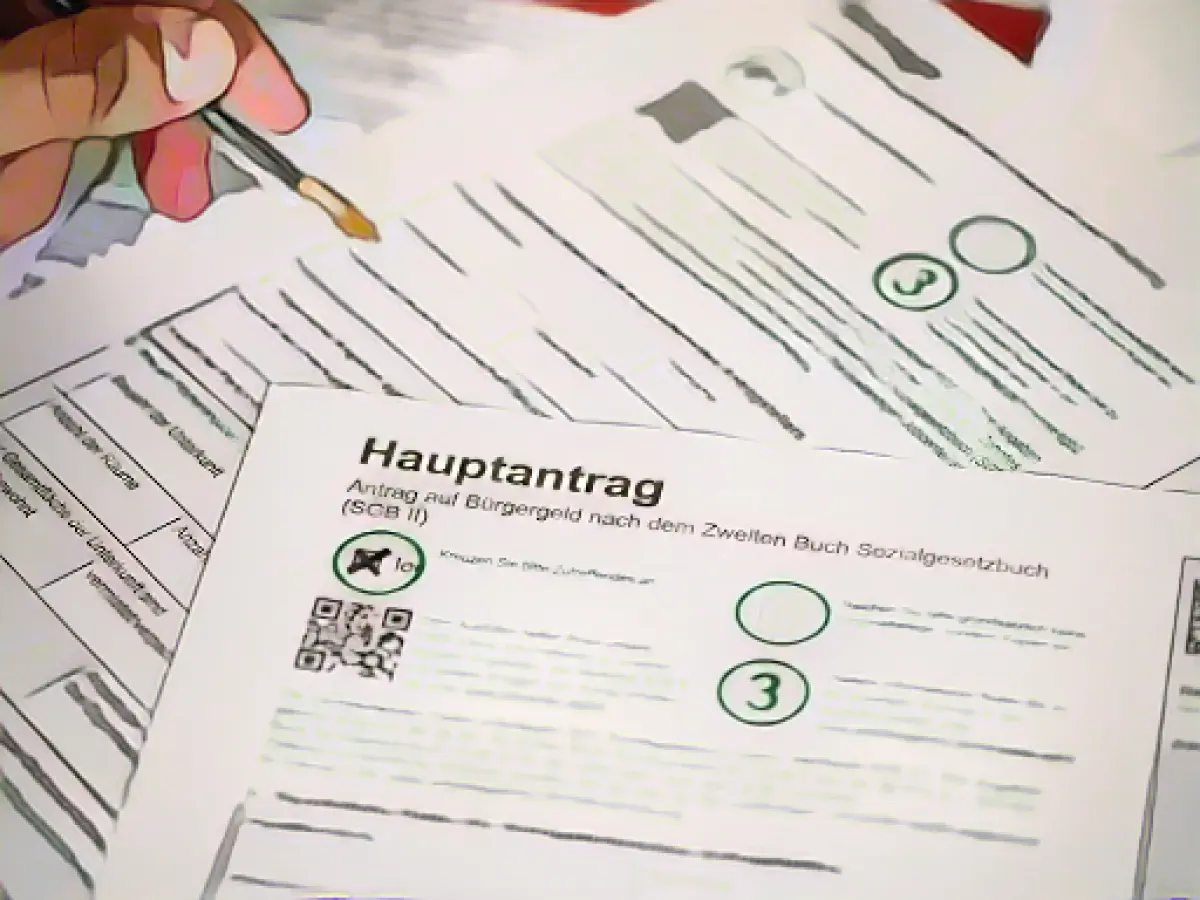Majority Warns of Lack of Work Incentive with Citizen's Income Increase
You'd be surprised, but 64% of the population have their concerns about the increase in the Citizen's Income coming into effect on January 1. According to a survey conducted by Forsa on behalf of "Stern" magazine, people are worried that the rise in Citizen's Income might deter them from pursuing regular employment.
The far-right AfD and conservative CDU/CSU parties are particularly critical. 86% and 78% of them, respectively, believe that the increase will hardly make job pursuit worthwhile. Even supporters of the liberal FDP (60%) and social democratic SPD (54%) share these concerns. The only group not sharing these fears are the Green Party supporters, with only 27% expressing doubts.
What's all this fuss about? As of early 2024, the Citizen's Income for over five million adult and child recipients of basic income support will see an average 12% increase. This is akin to the adjustments made to Hartz IV benefits akin to before, which are annually adjusted in accordance with prices and wages.
For single individuals, the Citizen's Income will rise by €61 to €563 as of January 1. But the survey reveals that a significant percentage of the populace, including FDP and SPD supporters, are apprehensive that this boost could diminish the incentive to work. Opponents of the Citizen's Income, such as the AfD and CDU/CSU, believe that this increase could make employment less appealing.
Source:
Parties' Stances
The debate about Citizen's Income and work incentives is complex, as it depends on political party bases' views. Here's a brief breakdown:
- Social Democratic Party (SPD): The SPD generally advocates for maintaining or increasing the Citizen's Income. They prioritize social welfare and address income inequality, which has escalated significantly over the past three decades.
- Christian Democratic Union (CDU/CSU) and Free Democratic Party (FDP): These parties favor reductions in the Citizen's Income or imposing stricter conditions for receiving benefits. They argue that this would increase the incentive to work by curtailing the financial support available to the unemployed.
- Alternative for Germany (AfD): The AfD supports reducing the Citizen's Income, which could increase the perceived incentive to work but at the cost of reduced financial security for many individuals.
- Green Party and Left Party: These parties advocate for higher taxes on high-income households to provide more financial relief to lower and middle-income groups. This approach might help decrease income inequality and increase the purchasing power of low-income households, potentially reducing the perceived need to work multiple jobs to make ends meet.
Each party's stance reflects their broader economic and social policies trajectories, influencing how they view the relationship between work incentives and social welfare benefits.







